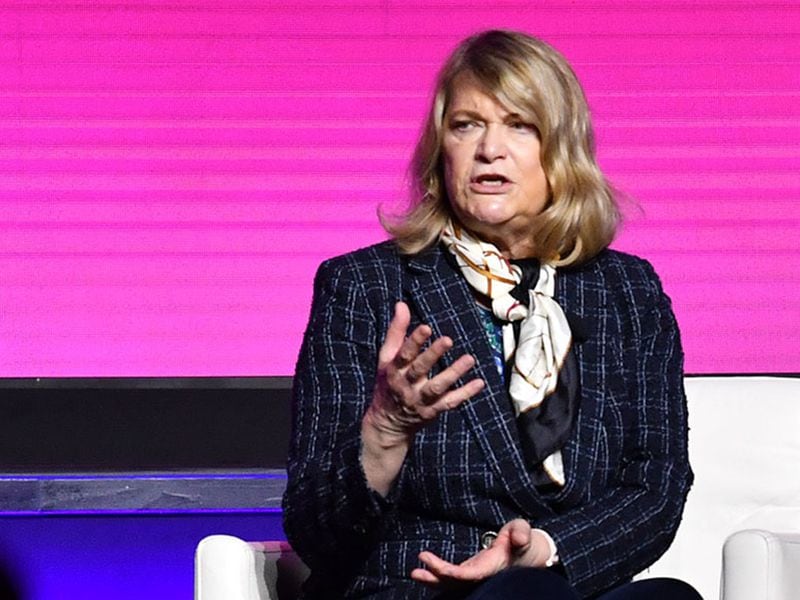Circle Internet Financial would have a distinct advantage over global stablecoin leader Tether under U.S. regulations along the lines being suggested by new legislation, according to one of the latest bill's authors, Sen. Cynthia Lummis (R-Wyo.).
"Let's say you're a U. S. consumer," and you're not an expert in the details about specific stablecoin issuers, Lummis told CoinDesk TV in an interview. She argued such a person is likely to favor companies overseen by U.S. regulations.
"If that were me, I would choose Circle over Tether," said Lummis, who introduced the latest stablecoin legislative proposal this week with her usual crypto partner Sen. Kirsten Gillibrand (D-N.Y.).
Stablecoins are designed to be tokens with steady value – typically pegged to the U.S. dollar – and are vital for use in other crypto trading or contracts. The Lummis-Gillibrand proposal is positioned as a work-in-progress bill meant to start conversations and to be modified for melding with whatever version emerges from the House, she said. But as it stands, it echoes other previous legislative efforts in demanding a bank-like regulatory regime for stablecoin issuers.
"This is very much oriented towards a U.S.-regulated company, and so Tether, if it chooses to remain offshore … that's a business choice for them," Lummis said, and the company and token, (USDT), would presumably be picked up by other regulators and continue operating beyond the U.S. system. "We're very focused on companies that are located and embedded in the U. S. economy."
Still, she said she'd expect existing stablecoin leaders such as Circle would have major regulatory hurdles to clear, such as getting licensed with a federal regulator. (Circle, as it exists today, would not be allowed to issue its (USDC) under the proposed bill, which demands that businesses issuing more than $10 billion in tokens be regulated depository institutions – either on the state or federal level.)
Circle hasn't responded to requests seeking comment on the bill.
"We're glad we went ahead and put it out just to get some good feedback," Lummis said, describing it as a "very firm, solid regulatory framework" that's meant to satisfy lawmakers who are worried about the crypto disasters they've been witnessing since 2022. "We're happy to adjust it according to changes the House might want to make, changes the White House might want to make, changes the industry might want to make."
While cryptocurrency legislation remains a longshot for this session of Congress, when viewing its current political turmoil, party divisions, workload and proximity to elections, several prominent lawmakers continue to issue optimistic statements. Recently, Senate Banking Committee Chairman Sherrod Brown (D-Ohio) reportedly said he's willing to talk about stablecoins (though alongside a number of his other banking priorities), and Senate Majority Leader Chuck Schumer (D-N.Y.) also said he's open to it.
The House Financial Services Committee's heads recently met with Schumer about moving crypto legislation, though it's unclear how far those talks have advanced. Lummis said Thursday that she's still waiting to see what emerges from the committee's chiefs, Reps. Patrick McHenry (R-N.C.) and Maxine Waters (D-Calif.). Spokespeople for both lawmakers did not return requests for comment about the Lummis-Gillibrand bill.
Industry insiders have been studying the legislation closely since its release, and some have said they remain uncertain about its potential effects and requirements.
Read More: U.S. Senators Lummis, Gillibrand Take on Stablecoin Legislation With New Bill
Nikhilesh De contributed reporting.
Edited by Nikhilesh De.
